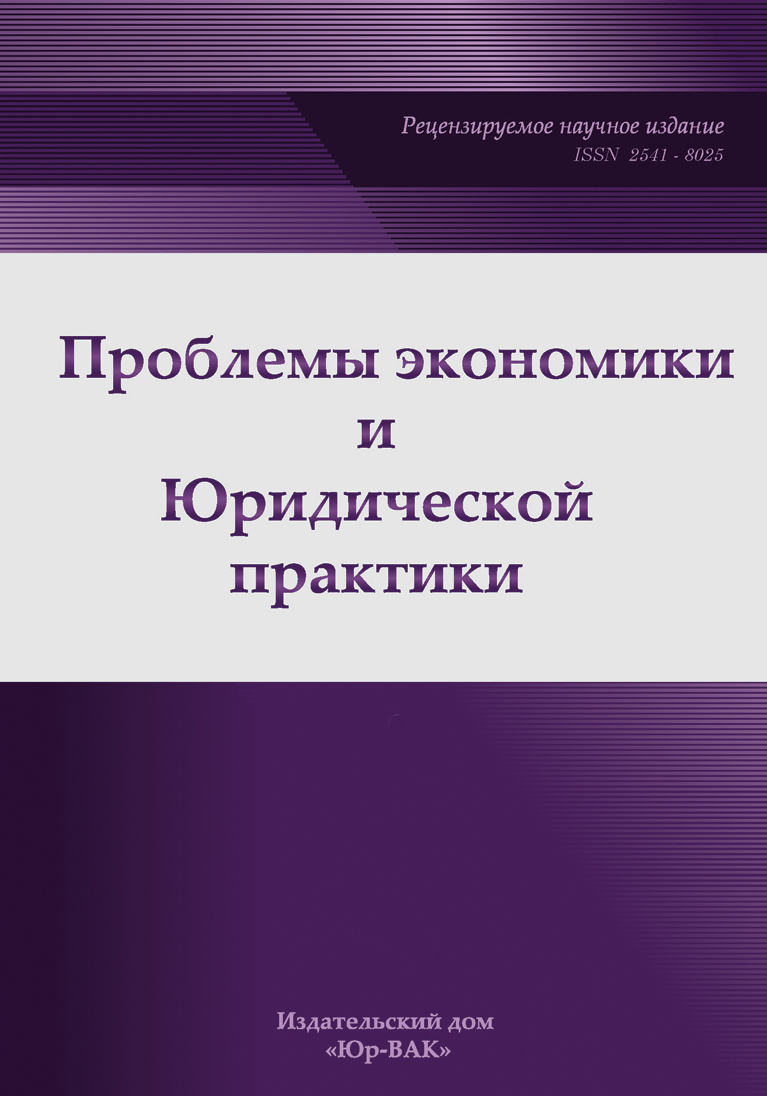The Economic Nature of the Incentive Reward of the Insolvency Officer and the Grounds for its Payment
- 作者: Akulov A.Y.1, Ryakhovsky D.I.2
-
隶属关系:
- Institute of Economics and Anti-Crisis Management
- Financial University under the Government of the Russian Federation
- 期: 卷 18, 编号 1 (2022)
- 页面: 163-168
- 栏目: Articles
- URL: https://journals.eco-vector.com/2541-8025/article/view/532093
- DOI: https://doi.org/10.33693/2541-8025-2022-18-1-163-168
- ID: 532093
如何引用文章
详细
The article deals with the economic and legal features of the payment of incentive reward to insolvency officers in the framework of debtor's bankruptcy cases; the grounds for the payment of subsidiary reward in the context of regulations in the field of bankruptcy and the position of the Federal Tax Service of Russia as an authorized body in bankruptcy cases are disclosed; on the example of bankruptcy practice, the role of the authorized body and insolvency officers in resolving disputes on bringing the persons controlling the debtor to subsidiary liability and paying them incentive reward is shown; the features of the payment of reward in the recovery of subsidiary liability from the persons controlling the debtor in the form of compensation are considered. The research was carried out in order to generalize modern theory and practice in revealing the nature of the bankruptcy reward and the conditions that determine the grounds for paying incentive reward to insolvency officers when bringing the persons controlling the debtor to subsidiary liability, which will improve the efficiency of the implementation of the procedures used in bankruptcy cases, on the basis of modern motivational mechanism.
全文:
作者简介
Andrey Akulov
Institute of Economics and Anti-Crisis Management
Email: kfba_ieay@mail.ru
Moscow, Russian Federation
Dmitriy Ryakhovsky
Financial University under the Government of the Russian Federation
Email: umc331@mail.ru
Moscow, Russian Federation
参考
- Akulova N.G., Ryakhovsky D.I. Labor motivation and its role in the process of personnel management of a business company / Management of economic systems: electronic scientific journal. 2017. No. 2 (96).
- Large Dictionary of Foreign Words. M., Publishing house «IDDK», 2007.
- Vetluzhskikh E. Reward system: how to develop goals and KPIs. Moscow: Alpina Publisher, 2021, 218 p.
- Voitov A.G. Efficiency of labor and economic activity: methodology of measurement and evaluation. Moscow: ITK Dashkov i K, 2020, 230 p.
- Meskon M.Kh., Albert M., Hedouri F. Fundamentals of management. Translation from English. M.: «Delo», 1992.
- Mitrofanova I.V., Korsakova I.V., Ponomareva A.S., Kalinicheva I.D. Motivation and stimulation of labor: the evolution of conceptual and methodological approaches // Economics: yesterday, today, tomorrow. 2019. Volume 9. No. 1A. pp. 436-451.
- Ozhegov S. I. Explanatory dictionary of the Russian language: 72500 words and 7500 phraseological expressions / S. I. Ozhegov, N. Yu. Shvedova; Russian Academy of Sciences, Institute of Rus. lang., Russian Cultural Foundation. -2nd ed., corrected. and additional M., Az, 1994. -907 p.
- Smirnova T.L. Formation of the institution of wages in Russia / Labor Economics. 2019. Volume 6. No. 3. S. 1229-1242. -doi: 10.18334/et.6.3.41081.
- Tikhonova, A.D. Motivation of personnel in the framework of the development of corporate knowledge management systems / Creative Economy. 2018. Volume 12. No. 5. S. 659-672.
- Chua, J. Employees’ self-determined motivation, transformational leadership and work engagement /J. Chua, O. Ayoko // Cambridge University Press and Australian and New Zealand Academy of Management. -2019. -Volume 27 (3). P. 1-21. -doi: 10.1017/jmo.2018.74.
- Jha, S. Understanding mindfulness outcomes: A moderated mediation analysis of high-performance work systems / S. Jha // Humanities and Social Sciences Communications. 2021. № 8(1). -doi: 10.1057/s41599-021-00708-x.
- Jong, J. The association between perceived personal power, team commitment and intrinsic motivation for permanent and temporary workers / J. Jong, C. Wilkin, C. Rubino // Economic and industrial democracy. 2018. Volume 40. Issue 2. -P. 257-279. -doi: 10.1177/0143831X18805848.
- Sabbagha M.De S., Ledimo O., Martins N. Predicting staff retention from employee motivation and job satisfaction // Journal of Psychology in Africa. 2018. Т. 28. Выпуск С. 136-140.
- Sungatullina L.B., Neizvestnaya D.V., Kadochnikova E.I. The Efficiency Analysis of Measures to Improve the Labor Productivity / L.B. Sungatullina, D.V. Neizvestnaya, E.I. Kadochnikova // The Journal of Social Sciences Research. -№ 1 (Special Issue), 2018. pp. 260-266.
- Wiegand, J.P., Misfit matters: A re-examination of interest fit and job satisfaction / J.P. Wiegand, F. Drasgow & J. Rounds // Journal of Vocational Behavior. 2021. № 125. -doi: 10.1016/j.jvb.2020.103524.
补充文件








